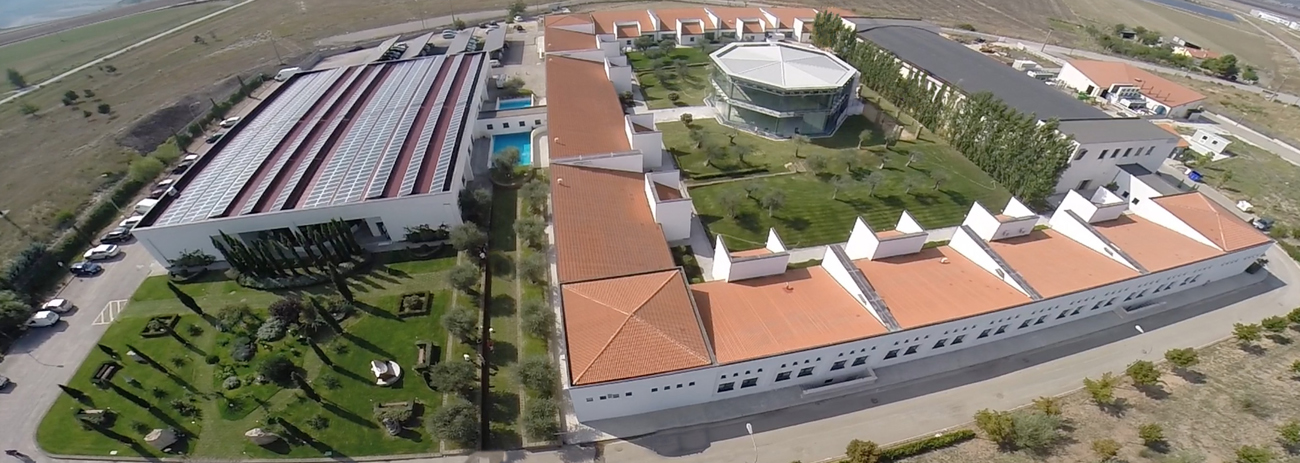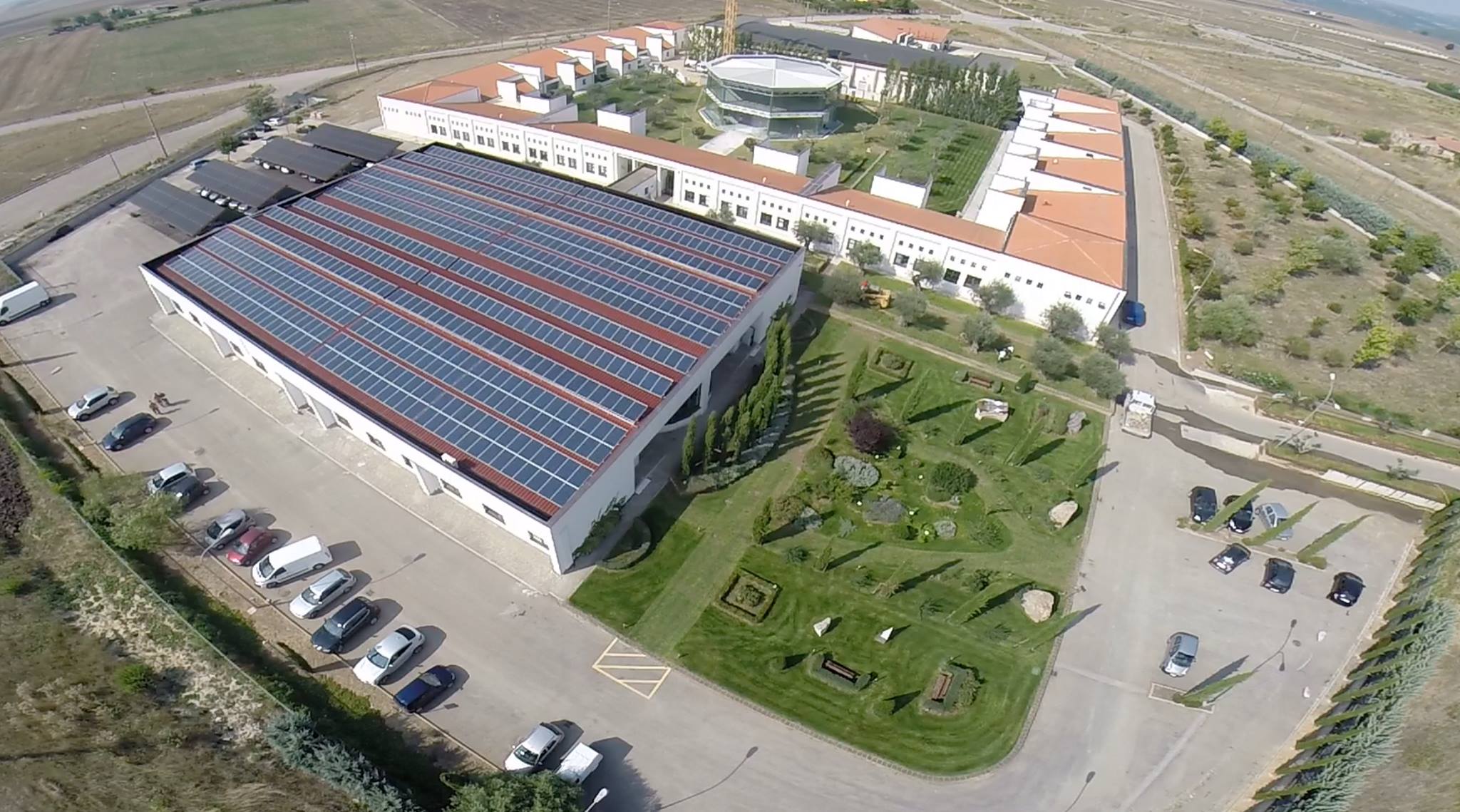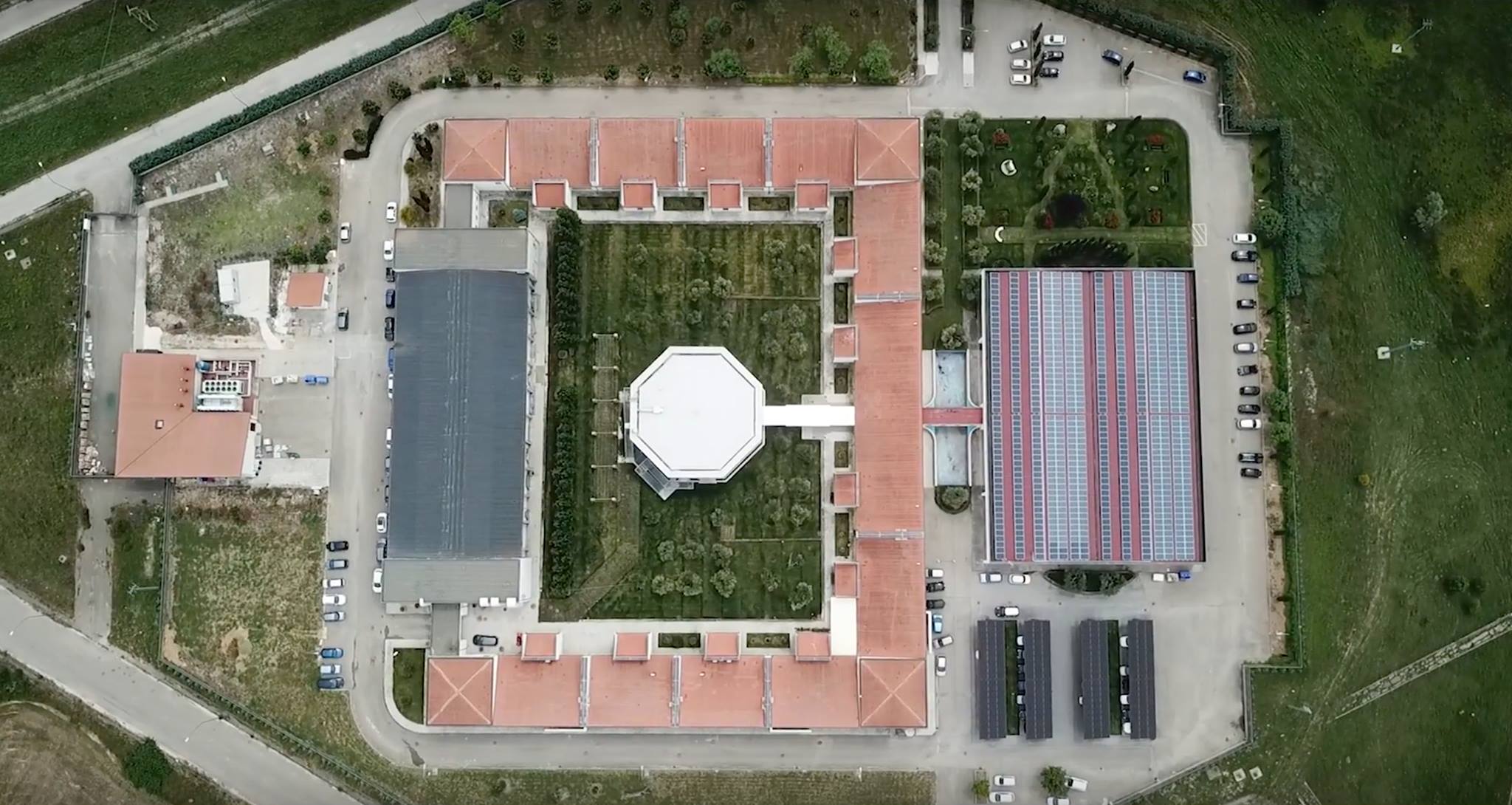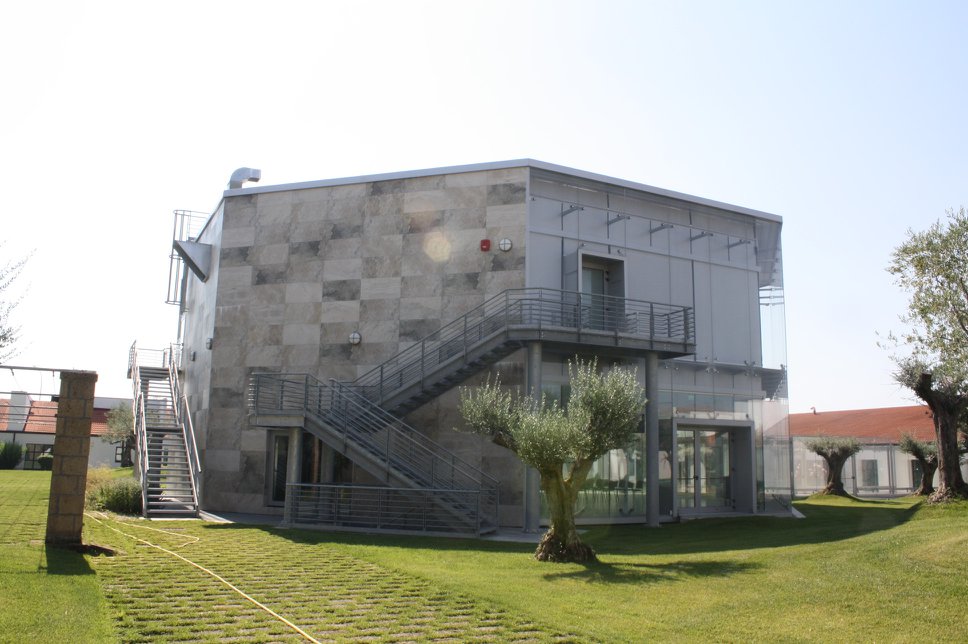About us
Biogem (Institute of Molecular Biology and Genetics) is a consortium between public research institutions (CNR -Italian National Research Council, Stazione zoologica ‘Anton Dohrn’ di Napoli, Consorzio per l’Area di Ricerca di Trieste), Universities (Università “Federico II” di Napoli, Università degli Studi della Campania ‘Luigi Vanvitelli’, Università di Milano-Bicocca, Università del Sannio, Università di Foggia, Università Suor Orsola Benincasa di Napoli, Università Lumsa di Roma, Università di Udine) Comune di Accadia, Comunità Montana dell'Ufita, Fondazione Biogem and Camera di Commercio Irpinia-Sannio.
Our research activities are carried out in numerous laboratories - Genetics, Epigenetics, Staminality and Tissue Regeneration, Translational Nephrology, Molecular Oncology, Genes and the Environment (aimed at studing pathologies induced by pollutant environmental factors) - with a specific animal models facility, in which transgenic models (murine models and zebrafish) are also produced. In addition, Biogem has a well structured Bioinformatics and Computational Biology core.
Unique center in the South of Italy for Toxicity and Biocompatibility regulatory testing, Biogem owns the certificate of compliance with the principles of Good Laboratory Practice (GLP).
Biogem also has a monoclonal antibodies and recombinant proteins production laboratory.
Since April 2020, in the framework of Covid-19 emercency, Biogem created a multidisciplinary team for the analysis of nasopharyngeal swabs.
Biogem campus extends over an area of 33,000 sqm (of which 8,200 are labs and office buildings). In the external area, originally bare of arboreal vegetation, over a thousand tall trees, an olive grove of 800 trees, among which 380 centuries-old trees, and a botanical garden, with numerous medicinal plants and a 1,600 sqm 'sensory path', have been planted. Despite the considerable increase in the spaces occupied, Biogem has more than halved its energy expenditure in the last ten years thanks to the use of renewable sources and insulation interventions.
Biogem is qualified as Training and Education Organization pursuant to Decree n.172 of 04/11/2011 of the Campania Region Employment and Education Agency. Our University Industry Internship Program (UIIP) offers customized post-graduate training courses funded by companies looking for specific professional profiles. These courses, focused on issues related to bioinformatics and ICT (Information and Communication Technologies), are delivered by
Biogem faculty, and teachers recruited ad hoc from academia, the research world, and the profession. Over the last years of the UIIP Program, about 1,500 students have been trained and initiated into work and over 50 leading companies have been involved, such as Engineering, Reply, Ericsson, BNL, Poste Italiane, TIBCO Academy, Meware Academy, SAS Academy, Accenture Academy and TI&M. The average placement rate is 95%.
In the Biogem research laboratories, PhD projects are carried out, in collaboration with various Campania and national universities, on state-of-the-art issues. About twenty are currently underway.
Every year Biogem offers cycles of workshops and seminars, delivered by internal and external faculty.
We contribute to the dissemination of scientific culture via our Museum of the History of the Earth and Life, Biogeo, created in collaboration with the National Institute of Geophysics and Volcanology (INGV) and characterized by extensive use of multimedia technologies.
Every year, in early September, Biogem organizes The Two Cultures meeting, from the title of the essay by Charles Percy Snow, in search of a new cultural paradigm to overcome the dichotomy between human sciences and exact sciences. Over the past 12 editions number of Nobel laureates and outstanding scholars have given lectures. In 2018 the President of the Republic, Sergio Mattarella, opened the conference.
Biogem is also an incubator of biotech and ICT start-ups Technology sectors, with significant employment opportunities for the local communities (over 60 full-time jobs created).

On 14 July 2006, in a solemn ceremony, in the presence of Rita Levi Montalcini and other major political, academic and scientific authorities, Biogem was opened in the Camporeale district at Ariano Irpino. This was the beginning of our adventure in a place rich in history, not only for the presence of the ancient farms, remnants of seventeenth-eighteenth-century architecture, but also for having been the scene of a very important event in the life of Southern Italy. In the expanse of Camporeale, in 1140, a large 'royal-field' was set up to house King Roger II and the hundreds of barons and feudal lords, with their respective followers, gathered from the entire territory of the new Kingdom, extending from Sicily to the Tronto river. The first 'parliament' was summoned in today's Camporeale district, and on that occasion the Constitution of the newborn Kingdom (the "Assizes of Ariano") was promulgated.
The choice of this location as the headquarter of Biogem stems from a challenge: creating a successful biomedical research center with all its downstream activities in the hinterland of a southern region, far from big cities and the traditional circuits of research institutions. In short, the challenge to offer a contribution to the battle against the underdevelopment of the South, focusing on culture, research and innovation, via the extension of the 'research system' to a marginalized hinterland area in the South, traditionally cut off from such perspectives. The refusal to passively accept the policy of neo-centralism that is impoverishing inland areas and aggravating the problems of urbanized areas and worsening their own quality of life.
The beginnings were not easy, with the site ready and active only for a third of its extent. Today a lot has changed from a structural point of view and beyond. The complex has been completed, and is fully operational. Significant functional and aesthetic changes have been introduced (the deserted land of that time is now a rich olive grove of centenary plants which, together with a wonderful botanical garden, surrounds the complex). Cutting edge scientific equipment has been acquires and an impressive energy-saving plan has resulted in a major cost reduction, thanks to photovoltaic and wind systems and adequate insulation. A large two-level building, made of steel and glass, has recently been built, to be used as a venue for educational activities and conferences (Museum of the History of the Earth and of Life - Library - Conference Room). Residence for researchers and students is located downtown Ariano Irpino.
Biogem has significantly expanded and strengthened its original mission, and the traditional biomedical research activity has taken on a more marked translational orientation, to be ever more directly at the service of healthcare. The new front of pharmacological research has thus opened, with structures and facilities that cannot be found elsewhere in the South, such as laboratories for the preclinical experimentation of drugs, operating with methods certified and controlled by the Ministry of Health [GLP], as a production laboratory of proteins for pharmaceutical purposes, and as a nutraceutical laboratory.
Unlike traditional research institutes, Biogem has also aimed to be a center for higher education (master's degree courses, research doctorates and masters in agreement with Italian and foreign universities and its own post-graduate training courses, organized with large national and international companies.
Above all, Biogem did not intend to close itself in the narrow confines of biomedical scientific research. Therefore, every year in September we organize the "The Two Cultures" meeting: scientific conferences, literary workshops and artistic events inspired by the logic of dialogue between humanists and scientists around 'fundamental' themes. Following the same logic, a Museum of the history of life and the earth (Biogeo) was set up, full of significant finds and multimedia attractions, to fulfill the duty of spreading the knowledge of 'our' history and to increase the interest in science of the new generations from southern Italy.
Since 1970 the "Guido Dorso" awards, promoted by the Guido Dorso association, acknowledge young scholars from Southern Italy and personalities from the institutional, economic, scientific and cultural world who "have contributed, with their activities, to supporting development needs and progress of the South. Recipients, for the various sections of the 41st edition, were: Filippo Patroni Griffi, president of the Council of State (institutions); Gaetano Manfredi, Minister of University and Research (university); Roberto Defez, director of the microbial biotechnology laboratory of the institute of biosciences and bio-resources of the CNR of Naples (research): Paolo Scudieri, president of AdlerPelzerGroup (entrepreneurship); Federico Pirro, Università di Bari (economics); Giovanni Grasso, press and communication advisor to the President of the Republic (journalism). Finally, in the ordinary section, Dr. Eva Panetti (Università Parthenope) was awarded for the research project "Entrepreneurship and innovation in Campania".
We are proud to receive the Plaque of the President of the Republic as part of the Dorso Awards, declared President Ortensio Zecchino on behalf of the entire community of Biogem. We remember the incredible honor when the Head of State visited our institute in September 2018. Our gratitude - concluded Zecchino- goes to the Guido Dorso association and its president, for their action and initiatives of cultural promotion in the South over the years ''.
The members of the Jury were: Giuseppe Provenzano, Minister for the South and territorial cohesion; Andrea Amatucci, President of the scientific committee of the Dorso Association; Massimo Inguscio, President of the CNR; Arturo De Vivo, Rector of Università di Napoli "Federico II"; Nicola Squitieri, President of Dorso association; and Francesco Saverio Coppola, secretary.
In the honor roll there are some of the most authoritative representatives of the world of institutions, research, economics and culture: from Giovanni Leone to Giorgio Napolitano; from Renato Dulbecco to Franco Modigliani; from Pasquale Saraceno to Francesco Paolo Casavola.
Biogem in Ariano Irpino received the Special Plaque of the President of the Republic, Sergio Mattarella, as part of the 41st edition of the Guido Dorso awards. The Special Plaque award is conferred to an institution that works for the economic, social and cultural progress of Southern Italy. The initiative, sponsored by the Senate, the CNR and the University of Naples "Federico II", took place in the Sala Zuccari of Palazzo Giustiniani, in Rome, on 12 October last year.

Social Bodies
Board of Directors
Prof. Ortensio Zecchino (President)
Prof. Bruno Dallapiccola
Prof. Giuseppe Paolisso
Prof. Marco Salvatore
Prof.ssa Marialuisa Lavitrano
Scientific Director
Prof. Giovambattista Capasso
Managing Director
Dott. Tullio Bongo
Scientific Board
Prof. Giuseppe Remuzzi (Presidente)
Prof. Franco Locatelli (Vice Presidente)
Prof. Andrea Ballabio
Prof. Fortunato Ciardiello
Prof. Antonio Iavarone
Prof. Andrea Lenzi
Prof. Mauro Magnani
Prof. Antonio Ereditato
Prof. Enrico Rizzarelli





























